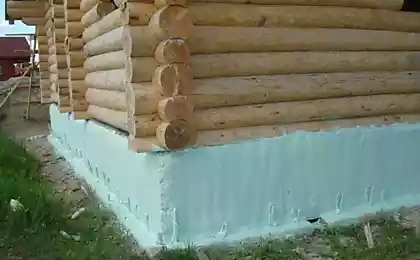151
Recommendations for preparing for the winter season: how to ensure warmth and comfort in the house

With the onset of the cold season, it is important to ensure that your home remains warm and cozy. Preparing for winter can help not only maintain comfort, but also reduce heating costs. In this article, we will tell you how to insulate housing, save on heating and take care of health in the cold season.
1. Insulation of the house: the main steps
To minimize heat loss, it is important to insulate the housing in advance. Here are a few recommendations:
- Window and door inspection: Clearances around windows and doors can cause significant heat loss. Use seals to close the slits, and replace old windows with energy-saving windows if necessary.
- Wall and roof insulation: If the walls and roof are not sufficiently insulated, the heat can quickly escape. Consider installing additional thermal insulation. This will require investment, but will pay off by reducing heating costs.
- Tight curtains: The use of tight curtains helps to keep warm indoors, especially at night. They create an additional barrier between the cold air and the interior.
2. Savings on heating: effective tips
High heating bills are a common problem in winter. To reduce costs, use these tips:
- Temperature adjustment: Lower your temperature by a few degrees when no one is home or when you are asleep. This can save up to 10% on heating without compromising comfort.
- Use of thermostats: Installation of programmable thermostats allows you to control and optimize energy consumption. This is convenient for maintaining a stable temperature and preventing overheating.
- Area heating: Close the doors to unused rooms and use zonal heating to heat only the rooms you are in. This will significantly reduce overall energy consumption.
3. Tips for maintaining health in the cold season
In winter, you need to pay special attention to health, as the cold and lack of sunlight can weaken the immune system.
- Ventilation and fresh air: Ventilate rooms regularly to avoid moisture accumulation and improve air quality. Clean and fresh air reduces the risk of colds.
- Healthy eating: Include in the diet foods rich in vitamins and minerals that support immunity. Fruits, vegetables, nuts and fish will help provide the body with the necessary nutrients.
- Physical activity: Even in winter, try to make time for exercise. Activity helps to maintain health, increase energy levels and improve mood, which is especially important during short and cloudy days.
Conclusion
Preparing a house for winter is an opportunity not only to ensure comfort, but also to save on heating. Insulation, reasonable energy consumption and health care will help you easily survive the cold season. We hope that our tips will help you create a warm and cozy atmosphere in the house for the whole winter.
Review of the current situation in Ukraine: key developments and trends
Psychological support in conditions of uncertainty: how to cope with stress and anxiety























